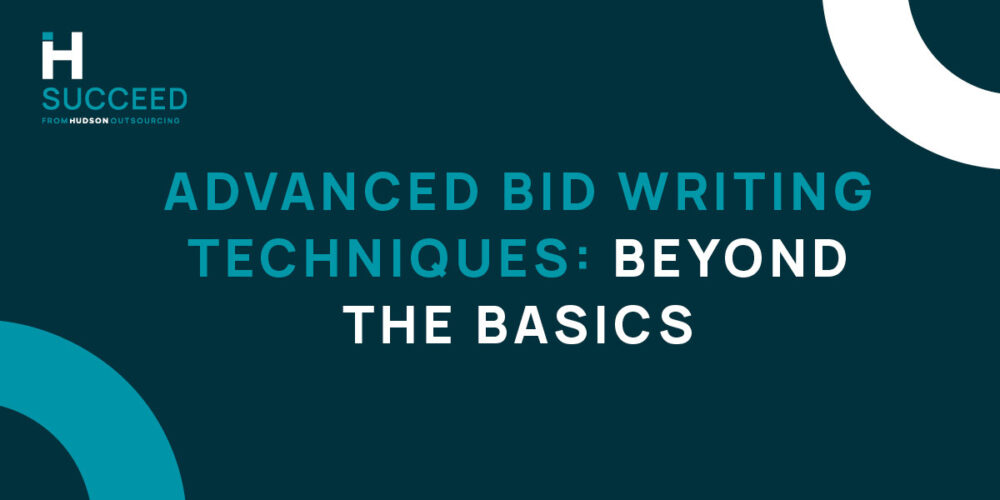Technical Bid Writer – Vital Steps to Writing Technical Responses
The key to becoming a technical Bid Writer is knowing what the buyer is looking for. You should aim to outline that you have the technical understanding needed. Writing winning, technical bids can be difficult without the knowledge or methods in place. Buyers often look for very specific, technical abilities. Understanding the right way to approach your tender responses allows you to demonstrate your company’s abilities in the best light. The key methods in writing technical responses are:
Researching:
Failing to conduct sufficient research is one of the most common pitfalls with supplier’s strategies. Buyers may require very specific services and failing to account for this can be off-putting. Key steps you can take to conducting thorough research and becoming a technical Bid Writer are:
· Researching the buyer’s background
Knowing what the buyer specialises in or the services they provide will allow you to fully understand their company. As well as what services they are looking for. This will allow you to respond in a way that showcases your technical ability in fulfilling their demands.
Some may have key targets or objectives they are trying to meet. If you can help them meet them, this could benefit your proposal. Buyers are always looking for added value in bids and it can give you an edge over your competitors. It pays to do your research early.
For example, say you are the buyer, and you are looking at two high-scoring bids. One includes added value, and one doesn’t. You would choose the one that is offering more for the same price. This is because buyers are looking for the most economically advantageous tender, or the MEAT. Simply put, the MEAT refers to the supplier offering the most value for money.
A technical Bid Writer will ask you how you’re going to add value to the buyer. It’s not enough just to say how you meet the requirements. You need to state how your services/goods will benefit the buyer.
· Researching key information from the tender specification
By doing this, you can ensure that the opportunity you are going for is right for your business. Buyers will often stipulate technical requirements and ensuring you have the correct experience will help you submit detailed responses.
As part of your research, you could ask yourself the following questions:
· Do you have enough experience?
Can you provide relevant contract examples that demonstrate your suitability for the project? Ideally, the buyer will be expecting to see at least two to three examples from the past five years.
· Is it financially viable?
Will you be making a profit? If you wouldn’t be making a profit, then it might not be worth pursuing the bid.
· Do you offer something unique in the market?
What are your USPs? Are you offering something that your competitions aren’t?
· Does this fit with your long-term strategy?
Will completing the project help you reach your business goals? If not, then there’s no point in proceeding with the tender.
· Do you meet the financial standing?
Generally, we advise against bidding for contracts that are worth more than 50% of your annual turnover. This is because, should you be successful, you’ll struggle to deliver the work.
· Do you need to outsource any work?
If you do need to outsource any work, then you could still win tenders. However, you need to show the buyer why they should choose you over prime deliverers.
· Would you choose yourself for this?
Most importantly, put yourself in the buyer’s shoes. Would you choose yourself for the project? If you answered ‘no’, then why should the buyer choose your business?
· Researching key qualifications/accreditations needed
Buyers will be looking for suppliers who have specific skills, accreditations, and relevant experience. Ensure your company has the skills and experience required. Then you can showcase your technical capabilities and verify your ability to fulfil the demands. You could have the following depending on your business sector:
- ISO 9001; 14001; 27001
- CHAS
- Cyber Essentials
- Safe Contractor
- SSIP.
· Continuous learning
Vital to becoming a successful technical Bid Writer is ensuring you continuously learn and hone your craft. Writing detailed and technical responses is not a skill you can learn overnight. In fact, professional Bid Writers continue to develop their skills over years. You must be proactively engaging with your field, constantly adapting, and expanding your ability.
· External learning
Gaining insights from other specialists within the field can be beneficial towards becoming a technical Bid Writer. This may include attending external seminars or conferences to gain the knowledge needed to become a well-developed technical Bid Writer.
Planning:
Key to becoming a technical Bid Writer is ensuring you create thorough bid plans prior to commencing work. Going into bids headfirst without developing a plan will result in rushed and flawed responses. Key steps in planning your responses are:
· Creating timescales
Setting out timescales is key to becoming a technical Bid Writer. Knowing your internal deadlines will allow you to leave time for developing technical responses. For example, you should allow time for:
- Initial meetings
- Clarification questions
- Planning and research
- First draft(s)
- Reviews, proofreads and edits
- Final draft
- Submission.
It’s also beneficial to plan for any setbacks that you might encounter. For example, what if one of your team is absent from work? What if you suffer from technical difficulties? By preparing for these occurrences, you’ll be ready to face and overcome them.
· Planning with your key personnel
The key to your technical abilities as a company is your team and their specific skills, qualifications, and experience. Ensure you fully understand your team’s capabilities and what this can bring to the tender. This will allow you to develop responses that fully showcase your team’s technical capabilities.
To help with this, look through your team’s CVs and assess their relevant skills. Their CVs should be up to date, including skills and experience from previous roles and at your business. For even more information, you could conduct informal interviews with each member of the team.
· Plan what case studies you wish to use
Take the time to go over your company’s case studies. Ensuring they are well developed is key in submitting technical responses. Planning which case studies you intend to use can ensure your responses include relevant, technical experience. This will demonstrate to the buyer that you have the skills they are looking for.
Ideally, you will include two to three case studies from the past three to five years. However, the buyer should specify this in the tender documents, helping you prepare. The most important thing is that the contract examples are similar in size, scope, and complexity to the buyer’s project. For example, if you’re bidding for a commercial cleaning tender, don’t demonstrate your experience with construction tenders.
You should include in your case studies any challenges you encountered. Detailing how you overcame these will demonstrate your problem-solving skills and flexibility. Both of these qualities are key when going for a technical bid.
You want to note the contracts that you complete on time and within budget. This will greatly strengthen your bid. It will also help instil trust in the buyer that you know what you’re doing.
Proofreading:
Whilst this sounds simple enough, proofreading is vital for any company looking to develop detailed, thorough, and technical responses. Having multiple pairs of eyes look over your responses is always better than one. The key steps you can take to achieving this are:
· Have key members of your team look over the responses
Asking members of your team to assess your responses will ensure the technical capabilities of your organisation are accurately portrayed. There may be aspects of your organisation that you may not be an expert in. Having key figures run over this is key in becoming a technical Bid Writer.
· Proofread with reference to the specification
This can be crucial in ensuring your responses are sufficiently technical. Specifications will usually have a list of paragraphs outlining key technical aspects of the tenders. You can ensure you are outlining the necessary technical capabilities needed by cross-referencing your responses with this.
· Using the correct terminology
Writing proposals for certain sectors can require you to use technical terminology in very specific ways. Tenders for website development, for example, will require you to use specific terminology in a relevant manner. On the other hand, tendering for a construction project will involve much different terminology.
Having someone experienced in this look over your response is key in becoming a technical Bid Writer. However, overusing jargon can also be off-putting to buyers. If they’re outsourcing a project, chances are they aren’t an expert in that area. Therefore, using the correct terminology in a clear and coherent fashion is key.
· Taking a step back from your responses and understanding your audience
Proofread your responses with your audience in mind. This will ensure that you are writing suitably technical and accurate responses. Taking a step back and considering what it is the buyer wants will ensure your responses are streamlined and relevant.
To help you do this, keep referring back to the buyer’s specifications. Make sure they’re in front of you as you craft your response. You could also keep a checklist of your key points to keep you on track.
· Making sure the tender response is completely error free
This applies to every type of tender writing, so it’s crucial for becoming a technical Bid Writer. You need to make sure that your tender response is completely free of spelling mistakes and grammatical errors.
Submitting a bid response full of mistakes won’t impress the buyer. In fact, they could actually think less of your company as a result. This is because it makes your business look lazy and unprofessional.
Imagine this: The buyer is reviewing two technical bid responses. Both companies have demonstrated relevant experience and social value. However, one business has taken the time to carefully proofread their work, leaving it error free. On the other hand, the second business has submitted a response full of mistakes, making it difficult to review. Which response is going to impress the buyer the most?
To ensure this doesn’t happen, there are certain techniques you can try. For example, you could try stepping away from the tender response for a while and reviewing it after a break. You could also try asking a second reviewer to proofread your writing for you. Both of these techniques will make it easier to spot mistakes.
Be engaging:
Becoming a technical Bid Writer does not mean that you have to create complex or boring responses. Simply taking the specification and replicating it word for word will be off-putting to buyers. Consider that buyers can be evaluating 20+ similar responses. Therefore, the key to developing technical and engaging responses that stand out from the crowd is:
· Being creative
Suppliers who can outline their technical ability in a creative manner will stand out to buyers. Using positive and engaging language will allow your responses to flow more easily. This will be much more attractive than long and overly difficult sentences.
· Formatting
If a buyer doesn’t provide text boxes for your responses, this is your opportunity to design attractive and engaging submissions. Buyers will be impressed that you have taken the time to design your content in an attractive and professional manner.
Where possible, stick to the formatting that’s outlined in the specification. Buyers can be strict about the formatting. Not adhering to this will demonstrate a clear dismissal of instructions and no attention to detail. Your bid may get marked down because of this as a result. Although inconvenient at times, you should try your best to stick to them.
· Being concise
Overcomplicating your responses with long-winded sentences can be extremely off-putting to buyers. The ability to take difficult language and use it in a simpler fashion is key for successful technical Bid Writer.
Remember to stick to the word count where possible. It’s there for a reason. You shouldn’t go too much under, or over. If there isn’t a word count, set one for yourself. Judge it off questions that are similar in size and scope. This can help you stay focused and limit your rambling. Look at the word counts for similar questions.
· Stick to word counts/page limits
As well as formatting guidelines, you also need to consider word counts and page limits too. Has the buyer assigned a certain number of words to each question? If so, how can you answer each question in full, all while observing the buyer’s word counts? Doing this effectively is a key skill of a technical Bid Writer.
Remember, it’s important to get as close to the word count as possible. Too many words and your response will look sloppy. Not enough words and the buyer might assume that you aren’t suitable for their project. Either way, not sticking to the word count suggests that you’re not capable of following instructions. If you inadvertently give the buyer that impression, you’ll struggle to secure contracts for your business.
Top tips
There are a couple of ways you can ensure you’re breaking up your response. Using bullet points can help reduce the word count while keeping it concise. They allow you to convey key information in an easy to digest way.
Buyers are notorious for asking long-winded questions with three points in one question. To break this up, use subheadings. This can help you make sure you’re covering every aspect of the question that’s being asked.
For example, a quality assurance question for healthcare may ask you to:
Describe in detail your organisation’s systems for monitoring and improving quality and standards across all aspects of service delivery. How does this directly improve the outcomes of the people you support.
For this, a technical Bid Writer would break the question down to cover:
- Your organisation’s systems for monitoring quality standards
- Your organisation’s systems used for improving quality standards
- How these improve the outcomes of people you support.
Conclusions of a Technical Bid Writer
To conclude, writing technical bids is not an easy skill. It takes time, research, and thorough planning. However, by following these steps, your company can grow and produce engaging technical responses. Tendering for contracts isn’t always easy.
Looking to outsource your next bid to a technical Bid Writer?
Here at Hudson Succeed, we pride ourselves on being bid writing experts. We hold an 87% success rate and have over 60 years of collective bid writing experience.
We offer four levels of bid writing support to suit every business need. Our technical Bid Writers can help optimise your chances of success with your next bid. You may not need the whole bid written for you; you may simply need it proofread before you submit. We can help with that.
Our services
Tender Writing
Once you’ve found the perfect bid for your business, send it our way. Our Bid Writers can take care of the whole thing for you they’ll even submit it on your behalf. They’ll let you know what they need from you, providing you with a full Tender Writing breakdown.
Tender Ready
Our Tender Ready 4-week programme is perfect for businesses that have never tendered before. A Bid Writer will work with you to ensure you have everything in place to tender successfully. They can also help you better understand the tendering process. Tender Ready offers your business:
- A 12-month subscription to one Hudson Discover.
- Access to Global Bid Directors and Senior Bidding Professionals.
- An Organisation-wide Bid library, including 3 case studies, 5 CVs and policies.
- Additional flexible benefits.
Tender Improvement
If you’ve been tendering but aren’t seeing success from your current efforts, our Tender Improvement package can help. Our Bid Team will assess your previous responses and tender documents. They will work with you to improve for future submissions. This package includes a 12-month subscription to a Hudson Discover portal and additional tendering development services.
Tender Mentor
If you’ve written your own tender response and need it double-checked for errors, Tender Mentor can help. A Bid Writer will proofread your work for any inconsistencies, grammar or spelling mistakes. They will also ensure it’s in line with the specification before you submit.
Additional support
If you only need the assistance with PQQs or SQs we can help. Send the information over to us and we can provide you with a quote for the work involved.
Alternatively, have a look at our virtual learning environment. Tender VLE is the first of its kind to provide advice and tips on all things tendering and the tendering process.
Discover Elite
Upgrading to Discover Elite can help optimise your tendering efforts – even when you’re busy. Our two new time-saving tools can improve your competitor awareness and success rate when bidding for a contract.
The Ultimate Time Saver package offers your business:
- A maximum of five tender breakdowns per month.
- An annual subscription to a maximum of two Hudson Discover sector-specific portals. This option can help businesses that overlap two industries such as Healthcare and Technology, for example.
- Pre-market and award engagement notices monitored on your behalf.
- Buyer portal management, including registration, password management, downloading documents and assessing viability based on your bid or no-bid strategy.
- Weekly phone calls with your dedicated Account Manager to discuss viable tendering opportunities.
The Become a Pre-Bid Master package also includes:
- All of the above.
- Up to seven tender breakdowns per month.
- A Bid Strategy delivered by a Senior Bid Manager with a minimum of 5 years of experience. It will also be managed by our Global Bid Director.
Contact us to find out how we can help your business grow. Lovely yeah finding that read the business but that’s just a blur of toast yeah literally
Find more helpful tips and advice in our blogs. We cover topics including:








